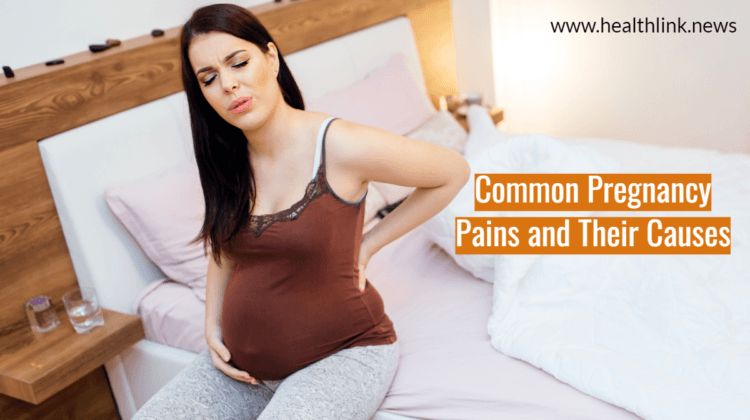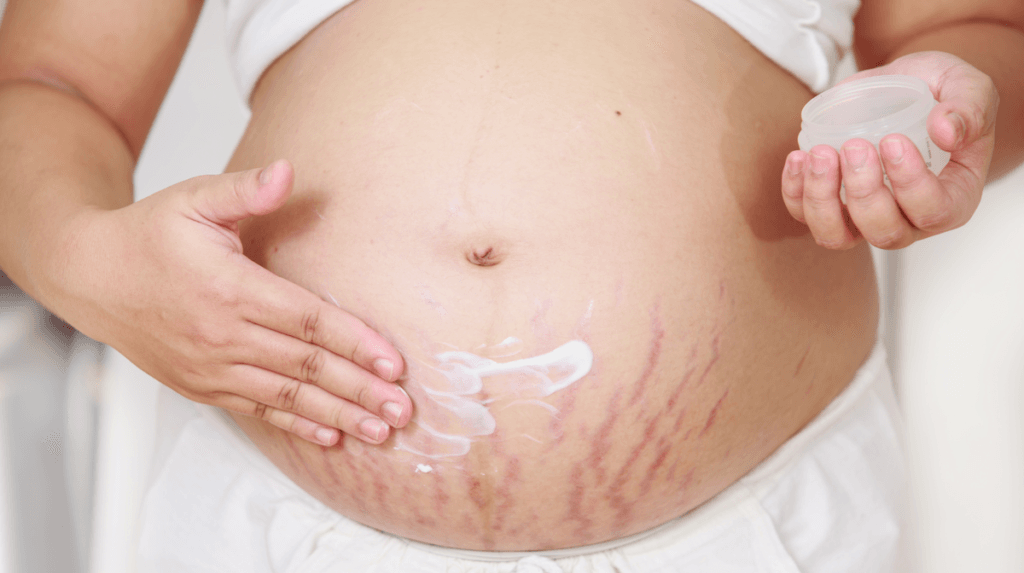Most Common Discomforts in Pregnancy and Their Causes

During your pregnancy, your baby grows, and your hormones alter, your body will go through a variety of changes. New aches and pains are prevalent throughout pregnancy, along with the other common symptoms. The majority of pregnancies are medically uncomplicated, and they result in the birth of a healthy baby. Make sure you sign up for a complete prenatal program with an obstetrician (a doctor who specializes in pregnancy and labor) or a midwife as your first — and most crucial — step. You and your developing baby will be monitored on a regular basis to ensure that everything is running smoothly, and if it is not, you will be referred for further treatment. Each step of your pregnancy, including labor, childbirth, and the postpartum period, will be covered in detail for you and your partner.
Some common pregnancy pains are:
Breast pain
Breast discomfort, like breasts, differs and comes in a variety of forms. It might affect one or both of your breasts. It could be all over, in one location, or spreading outward towards your armpits. The ache may be constant or intermittent. Breast pain is usually mild and achy in the first few weeks of pregnancy. It is possible that your breast is thick and bloated. They can be extremely sensitive to touch, making exercise and sex play quite unpleasant. ( Pro tip: Wear a good sports bra and discuss with your partner to see what more you can do at this time.) If you sleep on your stomach, there is a high chance that the pain can keep you awake at night.
In these early weeks, the nipples are especially sensitive for many women. They might be so sensitive to the touch that putting on a bra or drying off after a shower ache. Extreme nipple sensitivity, on the other hand, usually disappears after a few weeks. You may sense fullness and heaviness rather than soreness as the first trimester continues. During the first trimester, some women experience tingling in their nipples and areolas. Sharp breast discomfort, which feels like a knife being thrust into one breast, is uncommon during pregnancy. While it is possible, this type of discomfort is less common during pregnancy.
Causes : Breast soreness is often the first sign of pregnancy, appearing one to two weeks after conception, or during weeks three and four of pregnancy, in technical terms. Because your body is flooded with hormones, the sore breast sensation peaks in the first trimester. These hormones play a vital role in your body’s preparation for the birth of your baby. Hormones operate swiftly to prepare your breasts for breastfeeding to satisfy that baby. Your breasts start to become larger as the blood flow to the area rises. This growth can be uncomfortable, causing skin irritation and itching. In order to prepare for nursing, the milk ducts in your breasts expand. Hormones also promote the development of milk-producing glands.
Fatigue
Even if you have a lot of sleep, you may feel weary during your pregnancy. During the first trimester, many women report feeling fatigued. There is nothing for you to worry about, it is quite normal. This is your body’s method of informing you that you require further sleep. Tiredness is frequently replaced with a sense of well-being and vigor in the second trimester. However, tiredness commonly returns in the third trimester.
Causes : You may feel really exhausted. It is possible that this is due to your baby’s increased energy needs. It might also be an indication of anemia (low blood iron), which is prevalent during pregnancy. It is recommended you get lots of sleep by going to bed earlier and napping, when at all feasible, stick to a routine, take it slowly, and maintain a healthy balance of activity and rest. Do the daily moderate exercise as it will help you feel more energized. Request that your health care practitioner test your blood for anemia on a regular basis.
Nausea and vomiting
Hormone changes in the first trimester might produce nausea and vomiting. Although it can happen at any time of day, this is known as “morning sickness.” By the second trimester, morning sickness is usually gone. Keeping your stomach from being empty, eating multiple short meals rather than three large meals. After a meal, do not lie down. Before getting out of bed in the morning, eat dry toast, saltines, or dry cereals. Consume bland, low-fat, and easy-to-digest foods such as cereal, rice, and bananas. Water, weak tea, or clear soft beverages are all good options. Alternatively, you might consume ice chips. Avoid smelling things that make you sick. If you get flu-like symptoms, call your doctor right away because they could indicate a more serious problem. If you have severe, consistent nausea and/or vomiting numerous times a day, see your doctor. These tips could always be of assistance.
Constipation issues
Constipation is a common complaint among pregnant women. Hard, dry stools, less than three bowel movements per week, and unpleasant bowel motions are all signs of constipation.
Causes : Increased hormone levels caused by pregnancy impede digestion and relax gut muscles, causing constipation in many women. Constipation can also be caused by the pressure of the growing uterus on the bowels.
Headaches
Pregnancy brings in a lot of headaches. Before you take any medication, check with your doctor to see if it is safe. Relaxation practices, in addition to medicine, may be beneficial. Preeclampsia can cause severe headaches (high blood pressure during pregnancy). Tell your provider if your headaches get worse and do not go away easily with rest and acetaminophen (Tylenol), especially as your pregnancy progresses.
Lower Abdominal (Belly) or Groin Pain
This usually occurs between the period of 18 and 24 weeks. Move carefully or change positions if you feel strained or in pain. Mild aches and pains that last only a few minutes are common. However, if you have consistent, severe stomach pain, potential contractions, pain, bleeding, or a fever, visit your doctor straight once.
Some causes are:
- Abruption of the placenta (the placenta separates from the uterus)
- Preterm labour is when a baby is born prematurely.
- Gallbladder disease is a disease of the gallbladder.
- Appendicitis
- Aches and Pains in the Legs
- Your legs and back may hurt because of the increased weight you carry while pregnant.
To prepare you for childbirth, your body will also produce a hormone that loosens ligaments all over your body. However, because these looser ligaments are more readily injured, especially in the back, be cautious when lifting and exercising. Leg cramps are a typical occurrence in the final months of pregnancy. Stretching your legs before bed can help relieve cramps. Your healthcare provider can show you how to stretch safely. Keep an eye out for swelling and pain in one leg but not the other. This could indicate the presence of a blood clot. During their pregnancies, many women have modest edema in their face, hands, or ankles. Swelling typically becomes more obvious as the due date approaches.
Wrist Pain (Carpal Tunnel)
You might be surprised to learn that carrying a baby might induce wrist pain. However, up to 35% of pregnant women experience wrist pain or weakness, which commonly occurs in the third trimester. The carpal tunnel, which extends from your wrist to the bottom of your palm, is put under increased strain because of fluid retention. The pain will most likely subside after a few months following your baby’s birth. Urinary frequency and leakage are two symptoms of urinary incontinence. During pregnancy, bladder control issues are typical. The bladder, urethra, and pelvic floor muscles are all pushed down by your unborn kid. This pressure can cause you to need to urinate more frequently, as well as urine leakage when you sneeze, cough, or laugh.
Indigestion and heartburn
Causes : Indigestion and heartburn are caused by hormones and the pressure of the expanding uterus. The muscles of the digestive tract slow down because of pregnancy hormones. As a result, food moves more slowly, and digestion is slow. Many pregnant women have bloating because of this. Hormones also help to relax the valve that connects the esophagus and the stomach. This allows food and acids from the stomach to return to the esophagus. Heartburn is caused by a combination of food and acid. As your baby grows, the uterus presses against your stomach, causing heartburn to become more common later in pregnancy.
Breathing Problems During Pregnancy
Increased upward pressure from the uterus and alterations in physiologic lung function might cause shortness of breath. Contact your health care practitioner if your shortness of breath persists or you experience intense discomfort when inhaling. A pulmonary embolism is a type of blood clot that occurs in the lungs.
Skin changes and stretch marks?

Stretch marks are skin streaks that are red, pink, or brown in color. They are most commonly found on the thighs, buttocks, belly, and breasts. The stretching of the skin causes these scars, which usually emerge in the second half of pregnancy. During pregnancy, some women notice other changes to their skin. During pregnancy, many women’s nipples get darker and browner. Many pregnant women also acquire a black line on their skin that runs from the belly button to the pubic hairline, known as the linea nigra. Patches of darker skin are also prevalent, usually on the cheekbones, forehead, nose, or upper lip. Patches on both sides of the face are frequently matched. Melasma or chloasma is the term for these spots, which are more common in some women.
Backache
Pregnancy puts a lot of strain on your back and posture. Backaches can be avoided or reduced by doing the following:
- Maintain your physical fitness by walking and stretching on a regular basis.
- Low-heeled shoes are recommended.
- Sleep with a pillow between your legs on your side.
- Sit in a chair that provides enough back support.
- It is best not to stand for too long.
- When picking things up, bend your knees. Bending at the waist is not a good idea.
- Lifting heavy objects should be avoided.
- Make sure you do not acquire too much weight.
- Apply heat or ice to the painful area of your back.
- Someone should massage or rub the painful area of your back. If you go to a professional massage therapist, make sure you tell them you are expecting.
- To relieve back stress and maintain a good posture, use the back exercises recommended by your doctor.
Contractions of the Braxton-Hicks Syndrome
Beginning of the second trimester of pregnancy, the uterine muscles contract (tighten). Braxton-Hicks contractions are irregular, infrequent contractions (also known as “false labour pains”). This is completely typical during pregnancy.
If you have it, you are recommended to:
- Relax as much as possible.
- Shift your weight. This can sometimes help to relieve contractions.
- If they do not go away, see your doctor.
